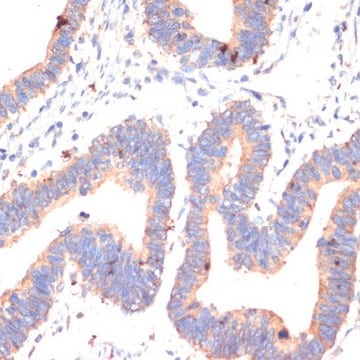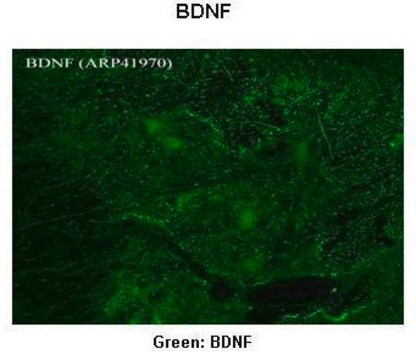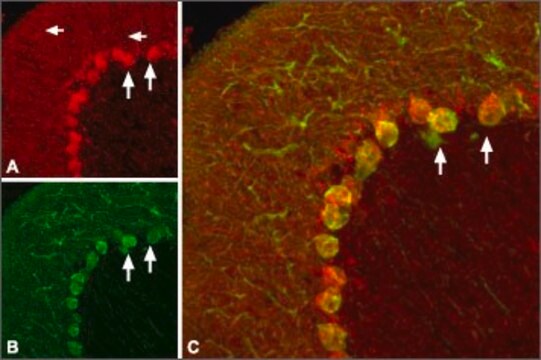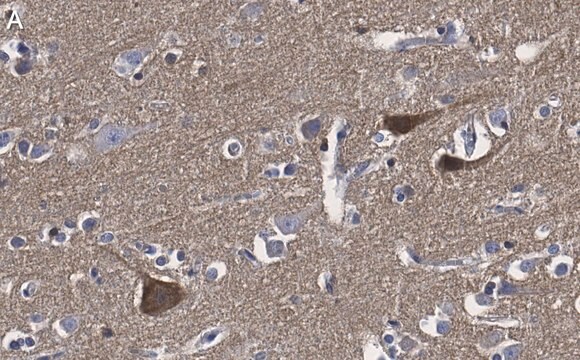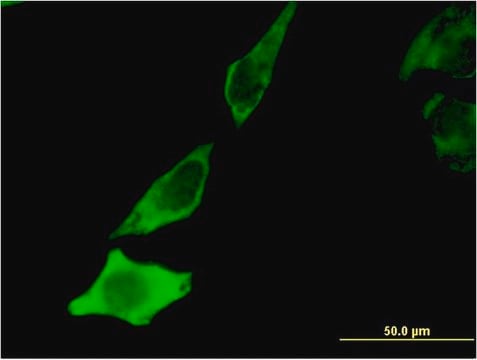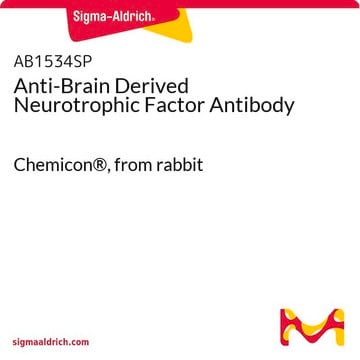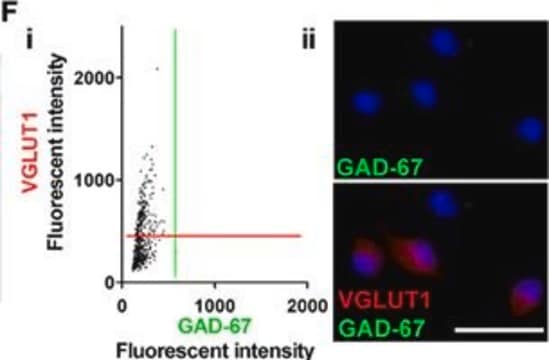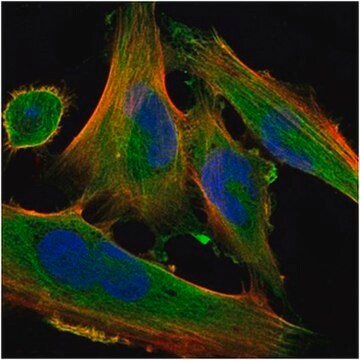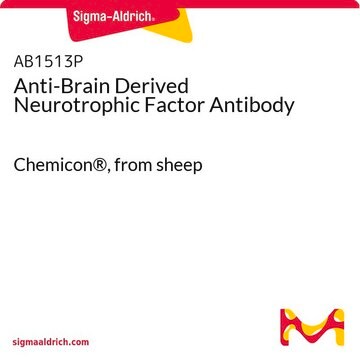SAB4200744
Anti-BDNF antibody, Mouse Monoclonal
clone BDNF129-13, purified from hybridoma cell culture
Synonym(s):
Anti-Abrineurin, Anti-Brain-derived neurotrophic factor
About This Item
Recommended Products
biological source
mouse
Quality Level
conjugate
unconjugated
antibody form
purified from hybridoma cell culture
antibody product type
primary antibodies
clone
BDNF129-13, monoclonal
form
buffered aqueous solution
mol wt
~12 kDa
species reactivity
human
concentration
~1.0 mg/mL
technique(s)
immunoblotting: 2-4 μg/mL using lysate of human HEK-293T cells over-expressing human BDNF protein
immunocytochemistry: suitable
immunohistochemistry: 20-40 μg/mL using pronase retrieved formalin-fixed, paraffin-embedded human cerebellum sections
immunoprecipitation (IP): 10-20 μg/mL using lysate of human HEK-293T cells over-expressing human BDNF protein
isotype
IgG2b
UniProt accession no.
shipped in
dry ice
storage temp.
−20°C
target post-translational modification
unmodified
Gene Information
human ... BDNF(627)
General description
Immunogen
Application
- immunoblotting
- immunohistochemistry
- immunoprecipitation
- immunocytochemistry
Biochem/physiol Actions
Physical form
Not finding the right product?
Try our Product Selector Tool.
Storage Class Code
10 - Combustible liquids
Flash Point(F)
Not applicable
Flash Point(C)
Not applicable
Choose from one of the most recent versions:
Certificates of Analysis (COA)
Don't see the Right Version?
If you require a particular version, you can look up a specific certificate by the Lot or Batch number.
Already Own This Product?
Find documentation for the products that you have recently purchased in the Document Library.
Our team of scientists has experience in all areas of research including Life Science, Material Science, Chemical Synthesis, Chromatography, Analytical and many others.
Contact Technical Service